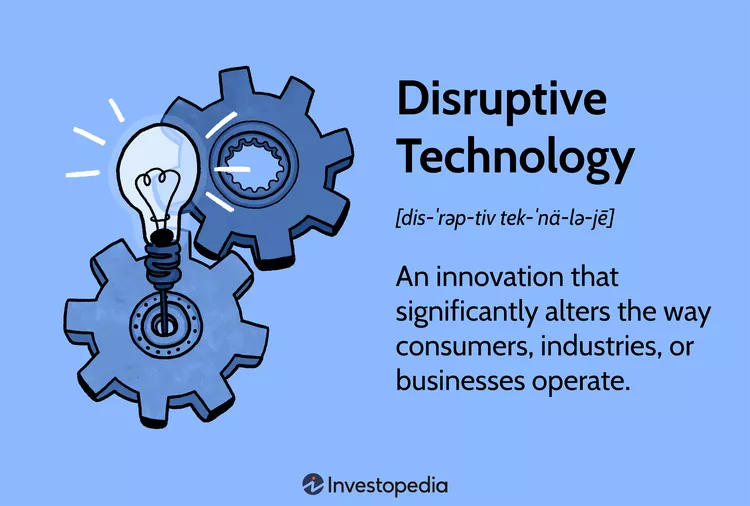Have no doubt, the intersection of finance and technology in the U.S. will keep evolving in magical ways. This has been the case for decades, even going way back to the early 1900s when the telegraph propelled FedWire to establish a mode for electronically transferring funds. In recent decades the pace of innovation in finance has accelerated. In the 1980s, the invention of PCs catalyzed the first electronic trade by an individual investor when E-Trade created its online brokerage. In the 2000s, the internet led to a new form of payment facilitation, most notably PayPal enabling eBay purchases and laying the groundwork for a wave of online businesses. And in the 2010s, personal phones empowered mobile banking, which presently outperforms physical branches. With every wave of technological advancement comes new and improved financial services on the front end that are possible because of modernized efficiencies on the backend. As Core looks to the next decade and beyond, we believe the current technology stack has created greater potential for outsized profits and social impact in financial services than ever before. With funding for the sector dramatically slowing from all-time highs, fintech stocks plummeting, rates challenging asset-heavy business models, and shiny emerging markets abroad, we’ve seen domestic investors fleeing fintech. We are gleefully doubling down.
Why do we still care?
Fintech has changed our lives for the better. Seamless payments acceptance has boosted productivity for businesses around the globe. Open access to financial data has increased access to borrowing for SMBs and consumers. Splitting a dinner with peers has become quick and painless. Competition from mobile banks has put pressure on overdraft and other hidden fees in the traditional banking system. The list goes on and on. And, of course, we still care because of the fact that the U.S. remains the most auspicious market in the world. The largest outcomes (PayPal, Shopify, Bill.com, Coinbase), the largest financial institutions (JP Morgan, Bank of America, Wells Fargo), and the largest networks (Visa, Mastercard) all still reside in the U.S. solidifying it as the most promising market to build towards IPO and the easiest market to find an acquirer.
Yet, fintech has failed to deliver its most ambitious, and most important, promise: improving ordinary citizen’s financial health. In the U.S, 63% of Americans still live paycheck to paycheck. 40% of households are approaching retirement age with zero savings. We witnessed the peak in “hardship withdrawals” from retirement accounts in 2022. Since ‘fintech’ became a phrase, wealth inequality has only grown with white Americans 10x wealthier than black Americans. Higher rates and persistent housing shortages have pushed housing affordability to all-time lows, depriving the average American of a potent wealth-building tool and forced-saving mechanism. SMBs, which make up 99.9% of all businesses, say financing hurdles are the #1 reason they fail. Financial security remains a mass market issue. And thus, financial technology must not only increase access but also affordability for the broadest range of consumers and businesses possible.
Why now?
We are in the midst of a wave of revolutionary technology, largely led by advancements in AI, but not to be forgotten is the maturation of blockchain and open banking technology. Simultaneously, massive demographic shifts in society will elevate demand for digitized finance. The convergence of the two makes it a special time to build a budding fintech business looking to maximize returns and impact, within financial services and beyond.
Over the last year, the capabilities of deep learning and large-language models (LLMs) have grasped the attention of major businesses and created the fastest growing consumer businesses we have ever seen. The pipedream of computers accomplishing complex human tasks is much more of a reality than anyone anticipated even as recently as a year ago. Generative AI is automating manual tasks and generating backend code, while traditional ML has enabled more accurate predictive analytics and enhanced fraud detection. The combination of the two has the power to eventually personalize financial advice – something I wrote about last year, which with every passing day moves closer to becoming a reality. Using AI, fintech businesses will be able to 10x productivity with the same (or less) amount of capital. There are many urgent hurdles to overcome, such as making AI accurate, ethical, and fair, but I believe the future is bright.
Blockchain has its fair share of skeptics, and for good reason given all the scammers that tokens attract, but we continue to look with optimism towards a future that enables decentralized, secure, borderless, and programmable transactions. A decade ago, you would never have imagined a digital dollar able to move anywhere across the globe in real time, while today there are over $120b worth of stablecoins in circulation and scalable blockchains to move them anywhere at a fraction of the cost relative to traditional money movement. The world’s largest payments platforms, such as PayPal, Visa, and Mastercard, are embracing the technology. Scalable blockchain infrastructure is well ahead of where we were a decade ago and will make 10x the advancements over the next decade with a slew of new talent pushing the industry forward.
When Core started, the idea of banks permitting consumers to control their financial data was blasphemy. Now, Plaid makes it possible to access your banking data, Atomic (a Core portfolio company) provides the same for your payroll data, Spinwheel (a Core portfolio company) the same for credit data, and regulatory tailwinds will continue to open the door to every data source that should rightfully be in consumers’ hands. What was once a mere aspiration has now become an undeniable reality. The ability to create cheaper and more accessible financial products would not be possible without the advancements in open banking.
Opportunities don’t arise from technology alone; they necessitate demand and compelling issues that need resolution. Presently, tectonic shifts are reshaping our society, from how we work to our digital prowess to our heritage. In the past year, 39% of workers did freelance work and by 2027 freelancers are projected to comprise over half the workforce. 75m+ young boomers are expected to retire by 2030, most of whom are woefully unprepared financially, while millennials and GenZ will be taking over the workforce as generations that grew up more digitally-native. And we simultaneously are getting more diverse (25% of the U.S. population by 2045 will be Spanish speaking) while becoming more wary of global adversaries- instigating a reshoring of jobs and a move back towards trading allies such as Mexico.
These trends are changing society in dramatic fashion, putting pressure on an already aforementioned fraught social safety net. In parallel, modern technologies present an opportunity for massive platform shifts and new-age solutions. In Core’s 13+ years of investing, we’ve never seen such a convergence.
Where we are spending our time
At Core, our north star is to create $1T in net new worth for everyday people (the 99%, not the 1%). No small task, but we are well on our way and the current landscape provides plenty of opportunities to find successful businesses that match profits with impact. Our focus:
- Unlocking intelligence through critical infrastructure. We’re still heavily focused on how infrastructure on the backend can increase access and affordability on the front end. With AI and open banking, the next wave of fintech infrastructure will focus on enabling intelligent orchestration of financial services. With blockchain, a more distributed database will unlock potential for a more connected world and new programmatic use cases.
- Catalyzing solutions for shifting demographics. Fintech solutions must fill the gap for emerging underserved communities. These demographic shifts present a rare opportunity to find solutions for vastly underbanked consumers and SMBs while riding tailwinds to create massive businesses. With an intense focus on distribution and economics, we’re looking towards b2b2c businesses that will have an easier time building sustainable business models than their direct to consumer predecessors who got caught in a costly marketing competition.
- Growing beyond financial institutions, fintech is everywhere. With a focus on healthcare, housing, education, and blue-collar industries, fintech is broadening its impact and driving financial wellness across more sectors of life. We’re excited to expand our horizons with it.
We’ll have deeper dives on these investment theses soon, stay tuned.
Comments and feedback welcome. David@corevc.com or @roosontheloos on Twitter (…or I guess X now)




